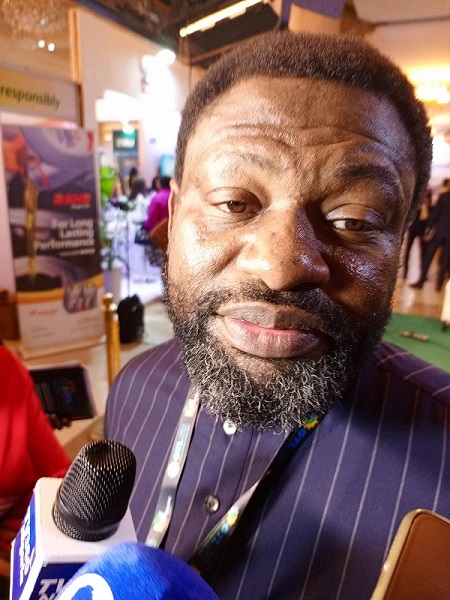Mr. Adebowale Olujimi, CEO of Emadeb Energy Services Limited
The Petroleum Industry Act (PIA) is in place to run Nigeria’s petroleum industry, but there is need for all stakeholders including the government to collaborate to encourage investors through the Act otherwise it will continue to be a challenge.
Also, the Act is to be reviewed to address certain gray areas especially for the downstream sector to attract investors.
Speaking to journalists at the sideline of Oil Trading Logistics (OTL) Africa Downstream Week, Adebowale Olujimi, Chief Executive Officer (CEO) of Emadeb Energy Services Limited, said, although Premium Motor Spirit (PMS) also known as fuel or petrol sells for N605 to N700 the fact is that Nigeria is still lucky that the government is trying to address the issue because current price is manageable compared to landing cost.
The Emadeb CEO was of the view that OTL provides critical opportunity for the government to collaborate with stakeholders in the downstream and midstream sector to chart the way forward for sustainable investment.
Excerpts:
You made a presentation at the panel session; can you explain to us some of your insights?
Nigeria is our country and as business men we have functions to play that is why it is important that forum like this are very critical for the successes of businesses and growth of the economy.
Laws are made and PIA has been passed two years ago, but as a nation we have not been able to move forward from where we were before the PIA was passed and there is need for all stakeholders including the government to come together to the round table and see how we can amend it to get to the promised land.
This is very crucial.
As business men to encourage investors through the Act is to continue to bring value to the table together. Without that, it will continue to be a big challenge for us.
Emadeb is one of the first indigenous companies to bring PMS to the country in post subsidy era but as it is now it’s almost practically impossible to go back to a one supplier source. So, that needs to be looked at and like I said, laws are made and can still be reviewed, which is a very critical point.
Fuel sells for N605 to N700 at present and we understand that subsidy has either been removed or still partially exists; can you explain to us about this development?
Well! It is not for me to clear the air about this development, the regulators are here and that’s their job to do. Fuel sells at N605 and above, the reality about Nigeria today is the fact that we’re still lucky that we have a government and the 605 I think it’s even a manageable cost. If you look at the landing cost of PMS is far more than what N605 brings to the table.
As far as you are concerned, what would you want to see this event address that will affect you as an operator or player?
The major aspect here as I mentioned, laws have been made and it’s critical that this event and government can collaborate with all businesses in the downstream and midstream, come together to chart the way forward for the nation because without collaboration between the government and business entities, looking at sustainable investment that genuine businessmen will really invest.
It will be almost impossible, if we have to continue like this, but the way it is now, the only way to continue to invest for any bank or financial institution to invest money in the business, there has to be a revisit of the laws.
You have been talking about regulation, if there are regulations, how do you want it to be complied by operators?
Every business entity and corporate businessman, whether you are being regulated or not would abide by the laws and comply. I don’t think there’s any businessman who does not want to be controlled, but there should be collaboration.
The government and businessmen have to encourage themselves so that the businesses can survive with opportunities for everyone.
As an operator in the downstream sector, what has been the difficulty in importation of PMS?
We all know it and there is nothing to hide here.


Comment here